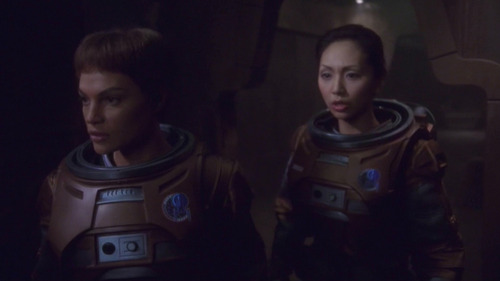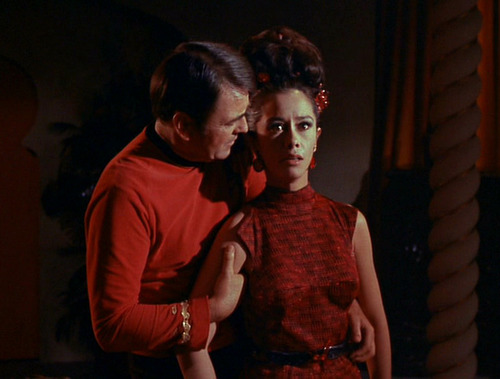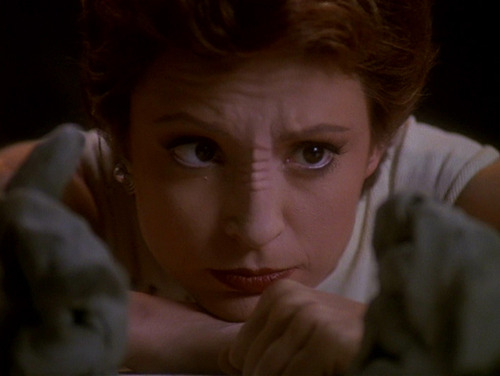In “Statistical Probabilities” we meet a group of people who were institutionalized after childhood genetic re-sequencing left them with “unintended side-effects.”
Turns out they’re super brilliant and Bashir may be able to harness their intelligence to the advantage of the Federation in the war. Cool concept, right?
Except most DS9 audience members would read the savants’ “side-effects” as versions of mental illnesses or developmental disabilities, especially at the time of airing before we had a discourse on neurodiversity. To support this reading, the character bio of the doctor who brings the patients to DS9 states she is a psychiatrist, and Bashir’s treatment attempts appear to be entirely psychological. He also states: “They don’t put people away for being genetically-engineered,” which implies they are institutionalized for other issues.
That makes it impossible to separate the sci-fi premise from our modern understandings (and the creators’ stereotypes) of disability, mental illness and neuroatypicality, and that makes for an episode full of problematic, mixed messages.
So let’s meet the savants and assess how they’re portrayed and treated.
1. Jack
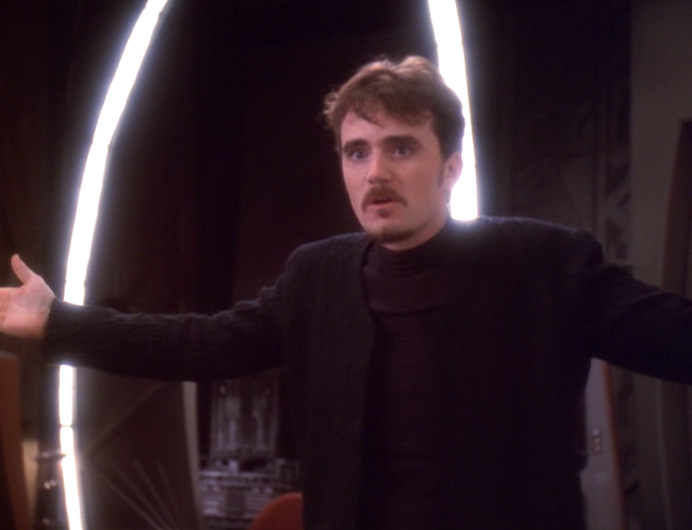
The actor who played Jack said of the character, “I figure he’s the equivalent of a guy who drinks forty cups of coffee a day.” Except Jack is not only hyper – he’s paranoid and occasionally violent, most notably threatening to snap the catatonic Sarina’s neck.
Jack is the most nuanced of the four savants and the only one who gives voice to the unjust situation they are in (that’s otherwise left up to Bashir):
“No, no. He [Bashir] is not like us. I never saw him at the Institute. He wasn’t locked away for being too smart. He’s passed himself off as normal. He’s Mister Normal Starfleet man. Mister ‘Productive Member of Society.’ Well, maybe we can learn to be just like him. Wear little uniforms. Yes, sir. No, sir. Thank you, sir.”
Jack’s lines are really well-written early on. He adeptly identifies Bashir’s privilege and the ableist rhetoric that says a person is valuable only if they can become a “productive member of society,” even though that society is not affording the savants the opportunities, accommodations, or basic respect and trust needed for them to fill meaningful roles.
Jack: Oh, no, no. I knew you were going to do that. I knew you were going to trot out the Eugenics Wars.
Bashir: I’m not trotting anything out. All I’m saying is there’s a reason we’ve been barred from certain professions. But that doesn’t mean we can’t be productive members of society.
Jack: Here it comes. The ‘we can still contribute’ speech. No. No, no, no, no. I will not forget what was done to me. I will not be part of a society that put me away for being too smart. No, no.
Unfortunately, Jack is also played for laughs and his valid critique of the system gets muddled by his actions later in the episode.
2. Patrick
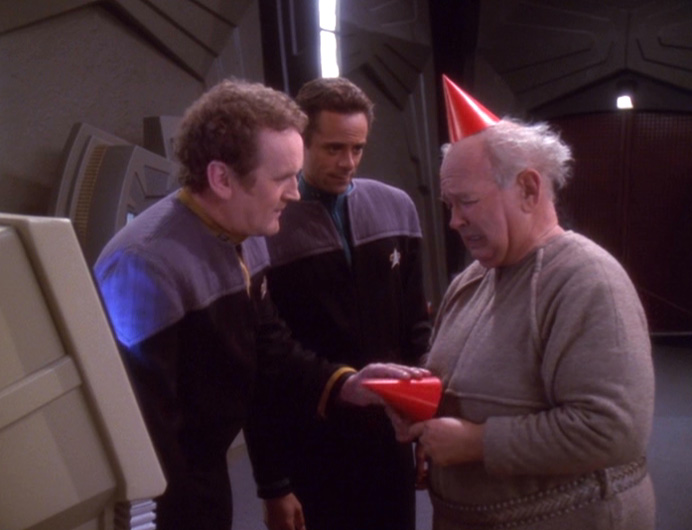
Patrick is portrayed as living with a possible developmental disability, with the actor stating: “He’s essentially a child, so I just played him that way. Children have instant access to their emotions and they don’t filter anything, so that’s what I did.”
Sadly, he’s played for laughs even more than Jack, although he does play a key role in deciphering the Dominion’s secret motivations.
3. Sarina

In this episode (“Chrysalis” is a whole other ball of gross, ableist wax), the actress who played Sarina said she was instructed to “behave pretty much catatonic,” as someone who is brilliant but can’t properly process the information flooding her senses. She also secretly loves Jack, even though he casually threatened her life earlier.
Although Sarina is the only savant who works against the others’ plan to commit treason, she only does so because of her feelings for Jack:
Bashir: Sarina, where is everyone? Did they arrange a meeting with the Dominion? Listen, we have to stop them before it’s too late. Untie me. Please, Sarina. You don’t want the deaths of so many people on your hands. It’s Jack, isn’t it? Are you worried what he’ll think? I’ve seen the way you look at him when you think no one’s watching. I know how much you care, but if you don’t let me stop them, you know what’s going to happen? They’re going to be arrested and charged with treason and you’re never going to see any of them again. You’re never going to see Jack again.
4. Lauren
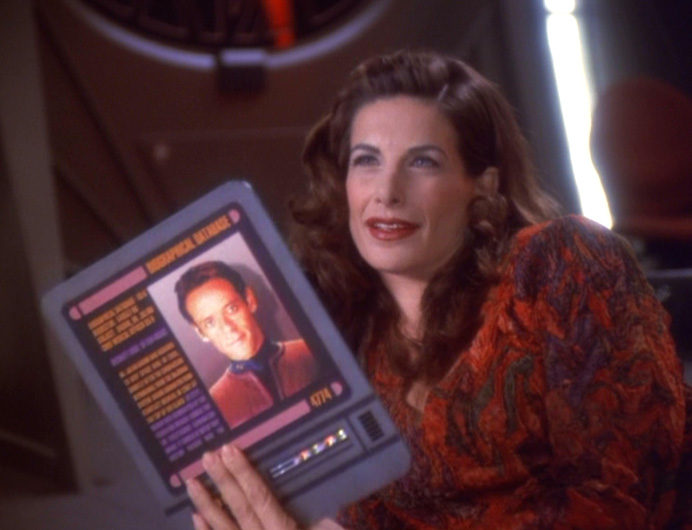
Lauren’s only problem appears to be that she’s a woman with a sexuality. The actress who played Lauren says: “She was described as being obsessed with Bashir, and very va-va-voom, but I decided to make her a little Hannibal Lecter-ish as well.” I couldn’t see any real obsession with or threat to Bashir – at one point she even encourages Bashir to leave to spend time with Miles. Her flirting with Bashir is definitely uninvited and inappropriate, but he doesn’t seem bothered and doesn’t try to stop her, even as her doctor.
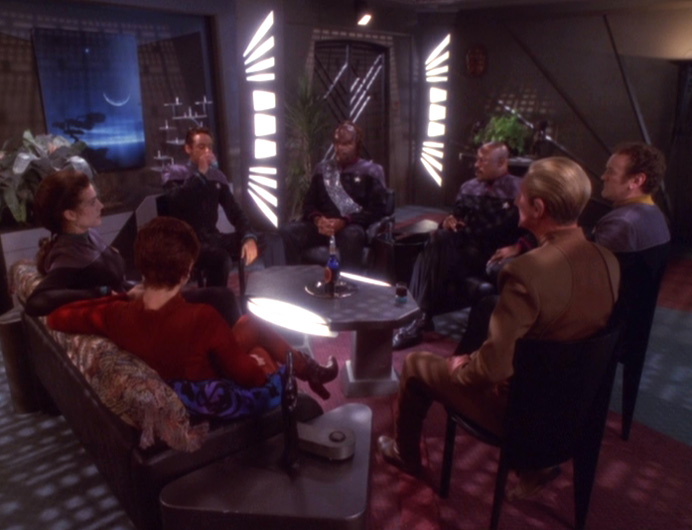
So let’s move away now from the savants as individuals and look at how they’re viewed as a class, by basically everyone else.
At the beginning, Bashir directly challenges his colleagues’ biases:
O’Brien: Let’s hope they don’t become too productive. Might make the rest of us look bad.
Worf: It is not a laughing matter. If people like them are allowed to compete freely, then parents would feel pressured to have their children enhanced so that they could keep up.
Odo: That’s precisely what prompted the ban on DNA resequencing in the first place.
Bashir: Giving them a chance to contribute doesn’t necessarily mean sanctioning what was done to them. They didn’t ask to have their DNA tampered with. They were only children. And why should they be excluded just because their parents broke the law?
O’Brien argues it’s ok because they’re not excluding the savants, “just limiting what they’re allowed to do.” Bashir points out the glaringly obvious – if the other genetically-engineered humans aren’t allowed to be in Starfleet, do his friends think he doesn’t belong either? Of course because they know him as an individual they get tripped up, saying he is an “exception.”
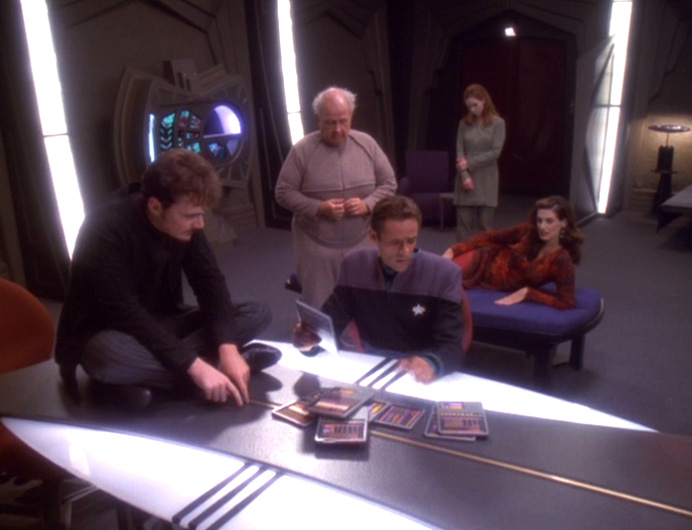
The problem is, the rest of the episode kind of validates the other main characters’ prejudice, by showing Bashir is an exception – the others can’t be trusted.
So Bashir gets the group working together to analyze data on the Dominion War and after an initial success, the group believes it has put together a rock-solid statistical case that the Federation cannot win the war. They even convince Bashir it will be better to surrender now than face the hundreds of billions of predicted Federation casualties.
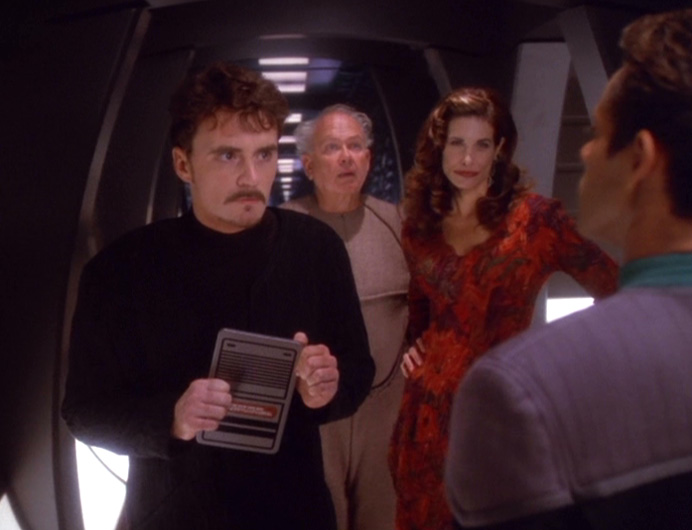
Except they take it a step further than Bashir. When the Federation says no to surrender, Bashir throws a bit of a tantrum. But by the next day he accepts that the best statistical plan can’t account for the unpredictable actions of even one individual person.
So Jack, Patrick and Lauren tie him up and try to go commit treason by giving Federation plans to the Dominion. Bashir only catches them by scaring Sarina, as I mentioned before.
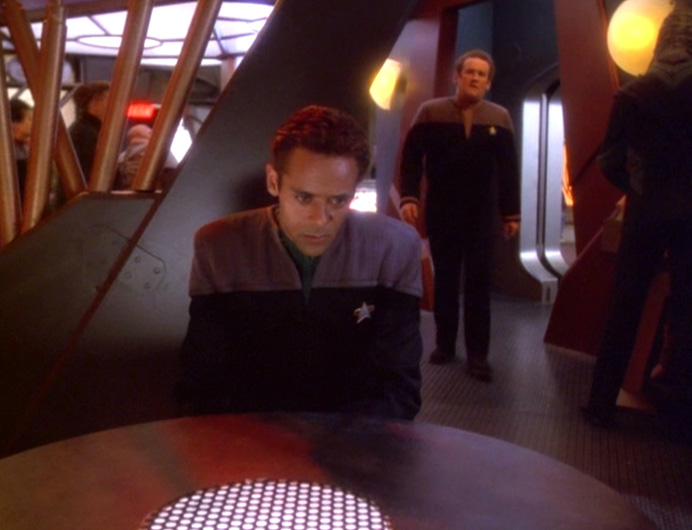
So sad Bashir is sad. He concludes he was wrong all along and it’s only fitting the others all get sent back to the Institute:
It’s my fault, not theirs. I should never have let things go so far. If I hadn’t been so bent on trying to prove to the world that they had something to contribute.
Miles weakly argues they did contribute…because people fear the Dominion again for realz or something.
Ultimately Bashir continues to maintain his privilege – unlike his co-mutants, he’s allowed to remain in Starfleet and outside of constant medical surveillance, to be respected as an individual. And that’s justified not because of his genetic status, or even because of their attempted treason (Sarina is treated the same as the other three), but because of the mental illness- and developmental disability-like symptoms of the others.
Which, let’s face it, is a pretty f-ed up message for Star Trek.
Bechdel Test: Fail








